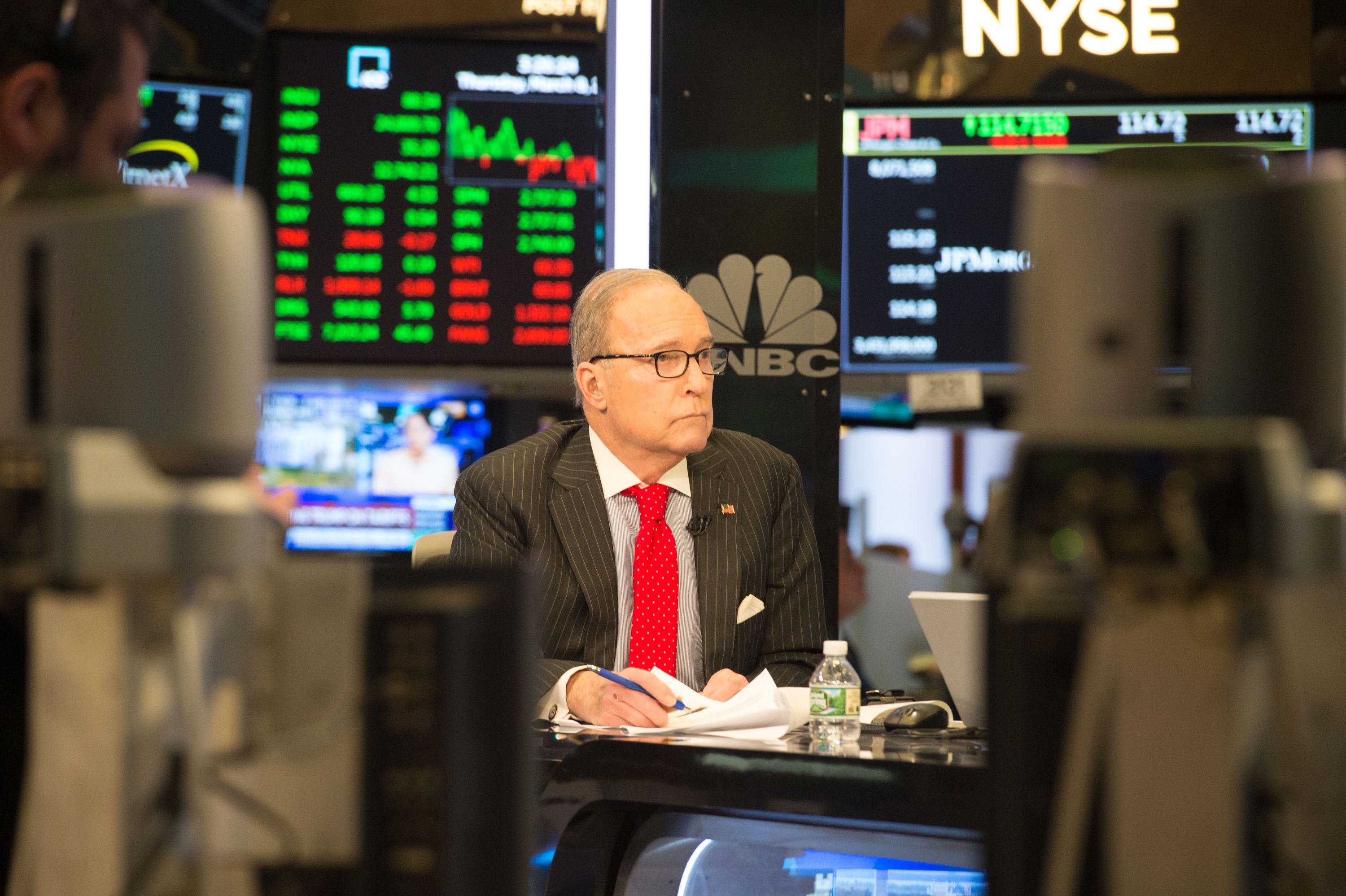I'm worried about my friend Larry Kudlow
Trump was smart to ask Larry to be his economic adviser. But was Larry smart to accept?


A free daily email with the biggest news stories of the day – and the best features from TheWeek.com
You are now subscribed
Your newsletter sign-up was successful
The cosmic writer of the Donald Trump, President of the United States show keeps coming back to the same tragic theme over and over: Characters get their hearts' desire, but in the worst, most humiliating way possible. Just ask Rex Tillerson, Jeff Sessions, Reince Priebus, Gary Cohn, Mike Pence, and Christian evangelical leaders how that feels.
So I pray the same fate won't befall Larry Kudlow, my dear friend and career mentor whom Trump is appointing the new director of the National Economic Council. For Kudlow, this unexpected turn of events must represent both a personal triumph and a vindication for his "supply-side economics" ideology. He will now theoretically have a direct role in shaping U.S. economic policy and turning his favorite maxims such as "Free market capitalism is the best path to prosperity!" and "King Dollar!" into action.
And Americans — humans everywhere for that matter — should be greatly relieved that he accepted. Though Kudlow is best known as a CNBC commentator, he was chief economist for both Bear Stearns and Ronald Reagan's budget office; in the grand scheme of Trump hires, that makes him the safe choice. Meanwhile, the likely runner-up for the position, economist and White House adviser Peter Navarro, is an anti-globalization zealot who would have enabled Trump's wrong-headed instincts on trade and international relations. More than just the North American Free Trade Agreement would have been in danger. You can also toss in the World Trade Organization, the global supply chains of American companies, and really the entire edifice of the prosperity-generating postwar economic order.
The Week
Escape your echo chamber. Get the facts behind the news, plus analysis from multiple perspectives.

Sign up for The Week's Free Newsletters
From our morning news briefing to a weekly Good News Newsletter, get the best of The Week delivered directly to your inbox.
From our morning news briefing to a weekly Good News Newsletter, get the best of The Week delivered directly to your inbox.
Kudlow, on the other hand, could be a moderating headwind against those impulses. Certainly, in his role as an economics commentator and outside adviser to Trump, Kudlow has to his great credit persistently criticized Trump's views on trade, beliefs which really form the core of Trumponomics. In a recent National Review article, for instance, Kudlow and fellow supply-sider Stephen Moore sharply criticized the president's decision to impose steep tariffs on aluminum and steel. They even wrote that tariffs are "really tax hikes."
Yeah, Kudlow and Moore went there. For a supply-sider, tax hikes — whether in the form of higher marginal tax rates or trade barriers or growth-dampening regulations — are the original sin of economics. And there is no more stinging charge they can level at a policy.
Still, sort of amazingly, Kudlow got the job. But is it really a job worth having under these circumstances?
The part of Trump's agenda that most excited Kudlow was the tax cuts, particularly the massive cuts in business taxes. But for all of Trump's talk about a "phase two" to tax cuts, a second round is highly unlikely to happen this year or even in the rest of Trump's first term given the precariousness of the GOP's congressional majorities. Moreover, passing future tax cuts will be difficult, both politically and fiscally, as trillion-dollar budget deficits become the norm. Where Trump does have power is on trade, which means Kudlow may be spending the bulk of his time trying to prevent bad policy rather than promoting good ideas. Or, even worse, Kudlow will play the good soldier and twist himself into knots trying to justify Trump's protectionism today as somehow leading to more and freer trade tomorrow.
A free daily email with the biggest news stories of the day – and the best features from TheWeek.com
And that's really the problem. Kudlow's ascent really doesn't mark the apotheosis of supply-side economics or even a greater GOP commitment to broadly pro-market policies. More likely it signals the last gasp of 1980s-style Reaganomics as a force in the Republican Party. Which wouldn't be a bad thing if it was replaced by a modern application of conservative, free-market principles in an increasingly digital economy that poses both new opportunities and unique challenges. (Indeed, Kudlow has expressed considerable interest in the impact of emerging technologies like artificial intelligence, unlike his new boss.)
Instead, however, the Trumpublican populist-nationalist turn is one that envisions a more closed economy — whether to goods, capital, or talent — where government shields workers and favored firms from dynamic change rather than preparing them to benefit from it. And in this GOP, culture war is what gets the juices flowing.
For a happy warrior like Kudlow, this late-career plot twist may lead to an unsatisfying finale.
James Pethokoukis is the DeWitt Wallace Fellow at the American Enterprise Institute where he runs the AEIdeas blog. He has also written for The New York Times, National Review, Commentary, The Weekly Standard, and other places.
